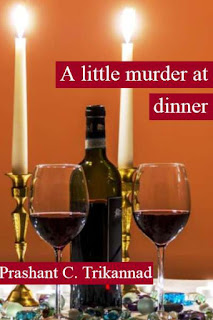Whatever you do, don't open your eyes.
Danish film director and Academy Award winner Susanne Bier’s Bird Box is a post-apocalyptic thriller and more. It also has shades of science fiction, horror, fantasy and the supernatural. Take your pick. The absence of visible monsters and hideous creatures is more than made up by the unseen, ghostly whispers and hallucinations.
The Netflix movie—based on the 2014 namesake book by Josh Malerman, the lead singer of the American band The High Strung—begins with Malorie Hayes (Sandra Bullock) and two young children, named Boy and Girl, making a perilous two-day journey to safety. They must grope their way through a forest and paddle down a fast-flowing river—blindfolded.
If they open their eyes, they risk coming under the spell of an invisible apparition (or entities) that causes psychotic behaviour among people, brings out their worst fears and forces them to commit suicide in horrible ways.
Malorie Hayes (Sandra Bullock) to the children: "Listen to me. I’m only gonna say this once. We’re going on a trip now. It’s going to be rough... Understand? Under no circumstances are you allowed to take off your blindfold. If I find that you have, I will hurt you. Do you understand? If you hear something in the woods, you tell me. if you hear something in the water, you tell me. But you never, ever, take off your blindfold. If you look, you will die. Do you understand?”
Cut back to five years earlier.
Malorie, single and pregnant, and her elder sister Jessica (Sarah Paulson) are returning from the doctor’s when the entities they heard about on television invade their town and nearly wipe out its population. The sight of the unseen causes Jessica to crash their car and kill herself. Malorie barely survives and finds shelter with a group of survivors who include Douglas (John Malkovich), a self-centered man with a gun, a helpful gentleman called Tom (Trevante Rhodes), and another pregnant woman named Olympia (Danielle Macdonald). The motley crew hide in a house, the doors locked and the windows covered up.
Director Bier does a clever job of taking the viewer back and forth throughout the 124-minute film, between Malorie’s impossible journey on the river (in the present) and the chaos and death she and the others confront in their hideout (in the past). The frequent flash-forwards and flashbacks, though a trifle annoying, do not lessen interest in the film.
Cut to five years later.
The entities are still omnipresent in the world. Malorie and Tom are now lovers and possibly the sole survivors in the town. The boy is Malorie’s, the girl is Olympia’s. Both are five years old. She loves the girl as her own. One day, infected survivors charge their house, forcing Tom to sacrifice his life and allowing Malorie to escape with the kids—down the river in a boat.
Bird Box, in Stephen King’s words, is riveting. I was, therefore, surprised at the scores of negative reviews of the film. I agree with the Master of Horror when he says, “Don't believe the lukewarm reviews, which may in part have been caused by reviewers’ ambivalence to the streaming platform, as opposed to theatrical releases. One might say movie reviewers suffer from the dread NP syndrome: Netflix Prejudice.” I’m glad I don’t suffer from it.
Susanne Bier packs several elements in this intensely atmospheric film—the chilling spectre of the unseen, the assorted characters who couldn’t be more dissimilar, the unpredictability of human nature, and the thought of what it’d be like to live (or die) at the mercy of a sinister presence. Just what the hell is that thing out there? It’s a question you keep asking even as Bier distracts you with one unfolding piece of action after another. And there's plenty of it.
From start to finish, Bird Box is Sandra Bullock's film. She carries it very well. If you’ve watched her other movies, you’ll see why she is suited for this one. She is spontaneous and, predictably, hyper-realistic; her character responding to the fearful circumstances with a mix of emotions, often loud and unsettling. It’s understandable in her situation.
I had two reservations about the film. One, the versatile Malkovich being pigeonholed as a bit of a looney, and two, Bullock and the children escaping blindfolded through miles of cold and hostile territory. Neither stopped me from enjoying the film on Christmas Day.




















